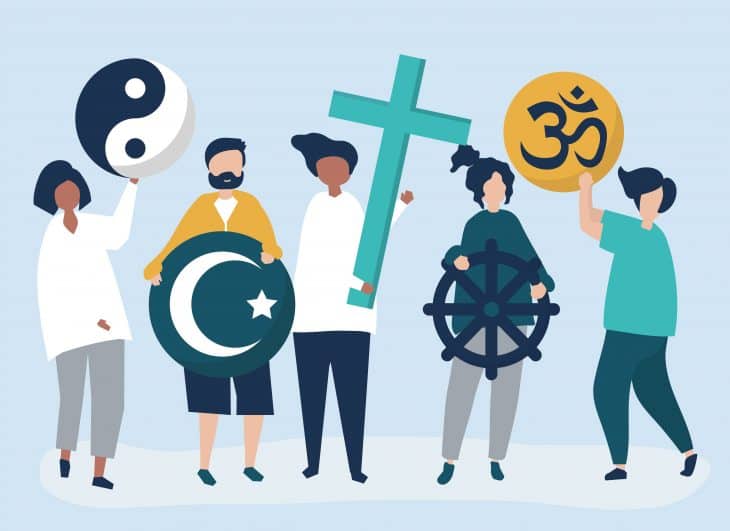
These religion facts will expose you to the different truths people believe in. Get to know their deities, values, and unique perspectives on life and death through these facts.
Quick Facts
Essential Facts
Interesting Facts
- Christianity is the largest religion in the world, with more than 2.4 billion followers.
- An estimated 1.2 billion people around the world do not follow any religion.
- Rastafari is the smallest religion, with 600,000 followers.
- Islam is the second-largest religion in the world, with 1.9 billion followers.
- Neo-Paganism has 1 million followers.
- Most major religions today date their founding to the centuries between 900 to 200 BC.
- Christianity dominated Europe in the Middle Ages.
- Islam spread across the Middle East and parts of Asia and Africa in the Middle Ages.
- Buddhism declined in India but spread in East Asia in the Middle Ages.
- Colonization spread Christianity to the Americas, Australasia, and part of Africa.
- The invention of the printing press helped start the Protestant Reformation.
- The French Revolution weakened religion by starting the secularization of society.
- The Industrial Revolution further accelerated the process of secularization.
- Religious influence worldwide faded by the late-20th century.
- The internet has become a way to spread and practice religion from the start of the 21st century.
- Archaeological evidence of religion goes back to the Old Stone Age.
- Göbekli Tepe in Turkey is the oldest religious site in the world, built in the New Stone Age.
- The Pyramid Texts of Egypt are the oldest religious texts in the world, going back to 2400 BC.
- The oldest of the Upanishads, Hinduism’s sacred texts, go back to the first millennium BC.
- The complete Hebrew texts were in circulation by the 1st century AD.
Table of Contents
Was this page helpful?
Our commitment to delivering trustworthy and engaging content is at the heart of what we do. Each fact on our site is contributed by real users like you, bringing a wealth of diverse insights and information. To ensure the highest standards of accuracy and reliability, our dedicated editors meticulously review each submission. This process guarantees that the facts we share are not only fascinating but also credible. Trust in our commitment to quality and authenticity as you explore and learn with us.


